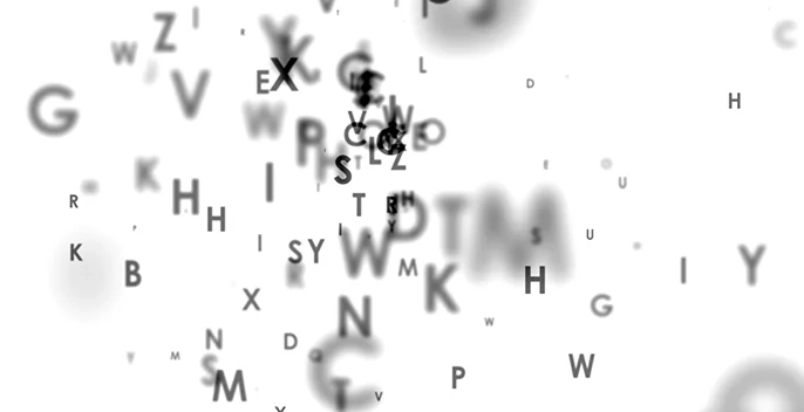Trial convictions against high-profile executives at well-known companies have been splashed across media sites, blogs, and twitter feeds. While some of the investigations underlying these cases were initiated under the last administration, with the current DOJ leadership encouraging its prosecutors “to be bold” in pursuing individuals, will these headlines multiply?
All Your Communications Belong to Us
the deterrence we get from a potential conviction of an individual, particularly a senior executive – there’s nothing like it.
In a 2021 interview with Law 360, Kenneth Polite, the Chief of the Criminal Division of the Department of Justice (“DOJ”) observed that “the deterrence we get from a potential conviction of an individual, particularly a senior executive – there’s nothing like it.” And there has been nothing like it.
Any prosecutor who has built successful cases against white-collar professionals knows that the best evidence lies in communications such as emails, text messages, and chats. Knowledge and intent are almost always the most difficult elements to establish beyond a reasonable doubt, especially when fraud is alleged. Sure, victims lost money, but did the defendant really mean to defraud them? This is when prosecutors like to waive around conversations that defendants had at the time the crime was committed. These communications are their best proof of knowledge and intent.
In our experience, one of the government’s first requests is for relevant communications.
It’s not surprising, then, that regulators and enforcers have begun to crack down on businesses that allow the use of encrypted messenger platforms, especially as the pandemic has caused more employees to use their personal devices for business. By requiring companies to bring their business communications back on the monitored grid, the government guarantees ready access to critical evidence against individuals. Given the power dynamic between a business and the DOJ and SEC, and the reductions in fines and penalties that can be gained from cooperating, a legitimate company under investigation almost always feels incentivized to cooperate. In our experience, one of the government’s first requests is for relevant communications.
Why should this concern white-collar professionals? In September 2022, the Deputy Attorney General, Lisa Monaco, reminded prosecutors that individual accountability remains the DOJ’s “first priority.” And there is time pressure imposed on prosecutors: they must bring these charges before or at the time of resolving the investigation with the company. If a prosecutor wants to resolve her corporate case without charging individuals, she will have to explain herself to either of two officials she will likely not want to bother: a United States Attorney or Assistant Attorney General.
Companies should expect the DOJ to require prioritization of evidence that will enable it to make cases against individuals
This memorandum came a year after an earlier one that expanded the requirement imposed on companies to disclose all the information relevant to all the individuals involved in misconduct, not just those who a company believes have been substantially involved. Companies should expect the DOJ to require prioritization of evidence that will enable it to make cases against individuals, and that includes “[c]ommunications associated with relevant individuals during the period of misconduct.” If they delay the disclosure of “all relevant, non-privileged facts about individual misconduct,” they risk losing cooperation credit.
To ensure they are well positioned to comply with these burdens and take advantage of the incentives for cooperating, companies should require their employees to have all business-related communications on platforms that would allow the company to monitor those communications. Where a company continues to permit communications on ephemeral messaging platforms, strong retention policies are critical. If the DOJ becomes interested in certain transactions, it will require the disclosure of related messages and emails, likely casting a wide net. At that point, the company will be obliged to quickly comply if it hopes to receive any cooperation credit.
A Crime Without a Criminal Mind
Executives and corporate officers may come away from these developments believing that if they don’t engage in fraud and they keep their business communication on company sanctioned platforms, then nothing has changed for them. But the DOJ’s unprecedented appetite for individual prosecutions can capture even those who do not participate in or even know about the crime. A little-known doctrine, the “Responsible Corporate Officer” (“RCOD”), was approved by the Supreme Court almost a century ago. Though used sparingly, it has allowed prosecutors to charge executives and in-house attorneys with misdemeanor offenses simply because they have a “responsible share” by virtue of their position.
Companies should expect the DOJ to require prioritization of evidence that will enable it to make cases against individuals
The RCOD asks if (1) the executive had influence over corporate policies or activities, (2) there is a connection between the executive’s position and the violation, and (3) the executive’s action or inaction facilitated or allowed the violation. The doctrine allows prosecutors to bypass their most difficult element – knowledge and intent – and charge executives with misdemeanour offenses based on something akin to strict liability. While the application of this harsh doctrine is limited to offenses that endanger public welfare, this “limit” has been stretched to cover a wide array of misconduct: environmental crime, healthcare fraud, consumer fraud, securities fraud, and antitrust violations.
In the seminal decision most often associated with the doctrine, United States v. Park, the Supreme Court concluded that a jury was properly instructed before convicting an executive that liability is appropriate simply because his position was one of authority and responsibility, even if he had not participated in the misconduct. Individuals “who execute the corporate mission,” the Court explained, are fair game, and that’s not just the president of the company: this liability does not have to be “confined to a single corporate agent or employee.”
Despite the Court’s increasing check on prosecutorial overreach, the doctrine has survived. In 1994, the Supreme Court observed that the penalties on the executives convicted of public welfare offenses (months of imprisonment) are “relatively small” and doing away with the intent requirement (as the RCOD does) is therefore constitutionally tolerable. More recently, the Supreme Court declined to revisit the doctrine when in 2017 it denied a petition for a writ of certiorari from a jailed company owner and his chief operating officer. They were in a position of authority over a business that shipped adulterated eggs, though, as the government conceded, they did not know about any misconduct.
Looking Ahead
Will the DOJ’s appetite for more individual convictions mean it will reach to the RCOD?
Thus far, the DOJ has not threatened the use of the RCOD, but it may be the next logical development in its emphasis on individual accountability. In the meantime, as companies fork over their employees’ communications, we expect to see more prosecutions, more convictions, and more prison sentences against individuals who might have previously gotten a pass.
How to Avoid Becoming the Next Headline
Business leaders would do well to remind employees that their communications could one day be reviewed by prosecutors eager to indict them and the company. One way to get employees to think of the consequences is to have them ask themselves whether they want whatever they are about to email or message to be splashed on the front page of the New York Times.
Executives, for their part, should remember that wilful blindness and lax compliance are never a defense and sometimes can even lead to their own criminal exposure. “See something, say something” may not be enough if you are in a position of power; you must also do something.
Author
Published date
19 Jan 2023







